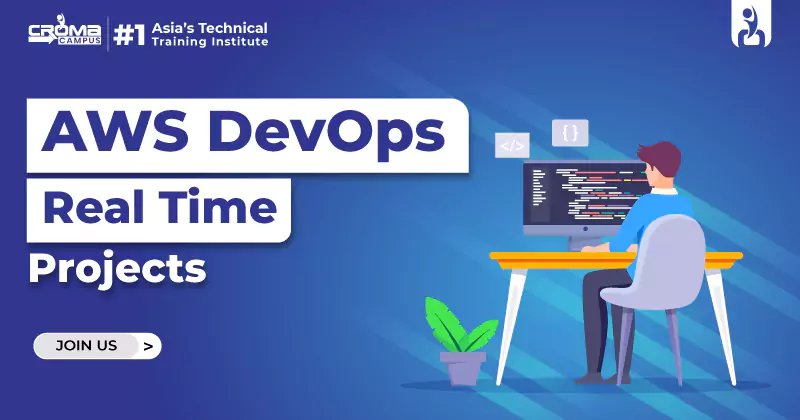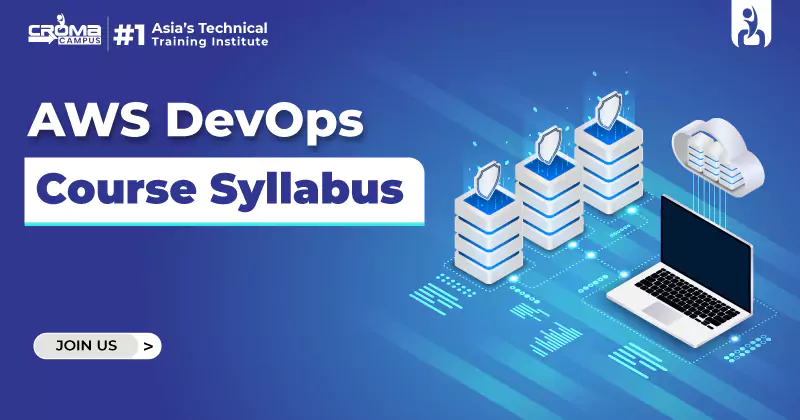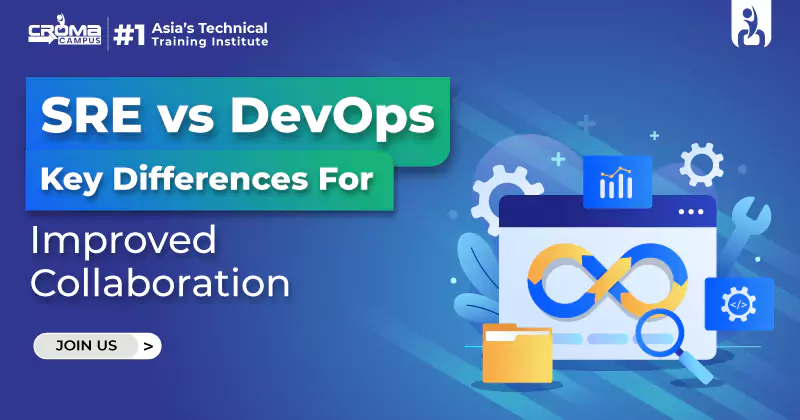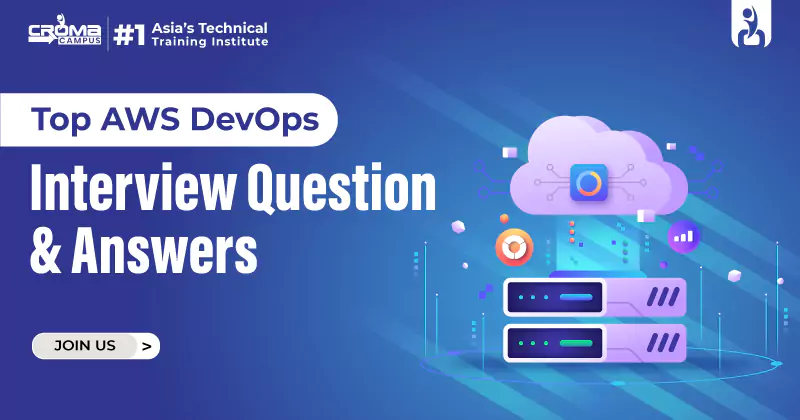Which Programming Language Required For DevOps?
4.8 out of 5 based on 10275 votesLast updated on 24th Jun 2024 23.28K Views
- Bookmark

To effectively implement DevOps practices, proficiency in several programming and Scripting Language for DevOps is beneficial.

Introduction
DevOps, a blend of "Development" and "Operations," is a transformative approach aimed at enhancing collaboration between software development and IT operations teams. It focuses on automating workflows, improving efficiency, and accelerating the delivery of high-quality software. To effectively implement DevOps practices, proficiency in various programming and scripting languages is essential. One can join the DevOps Course for the best skill development. These languages facilitate automation, configuration management, and the creation of continuous integration/continuous deployment (CI/CD) pipelines.
Understanding the key languages used in DevOps not only streamlines operations but also ensures the seamless deployment and maintenance of applications, ultimately driving organizational agility and innovation.
Programming Language Required For DevOps
DevOps, short for Development and Operations, is a set of practices that combines software development (Dev) and IT operations (Ops). It aims to shorten the systems development life cycle and provide continuous delivery with high software quality. The essence of DevOps lies in automating processes, improving collaboration between teams, and enhancing the reliability and speed of deployments. To effectively implement DevOps practices, proficiency in several programming and Scripting Language for DevOps is beneficial.
Here, we'll discuss the key DevOps Programming Language and their specific applications within the DevOps lifecycle.
1. Python
Why Python?
Python is renowned for its simplicity, readability, and a vast ecosystem of libraries and frameworks, making it a preferred choice for many DevOps tasks.
Applications in DevOps:
- Automation: Python scripts are widely used to automate repetitive tasks such as configuration management, infrastructure provisioning, and deployment processes.
- Configuration Management: Tools like Ansible rely heavily on Python for managing configurations across various environments.
- Scripting and Orchestration: Python is a popular DevOps Language. It is used for writing custom scripts and orchestrating workflows in CI/CD pipelines.
- Monitoring and Logging: Python’s robust libraries like psutil and loguru are used for system monitoring and log management.
2. Shell Scripting (Bash, PowerShell)
Why Shell Scripting?
Shell scripting is fundamental for interacting with the operating system directly and is essential for automating server management and application deployment tasks.
Applications in DevOps:
Automation of Routine Tasks: Shell DevOps Scripting Languages are used to automate routine administrative tasks such as backups, updates, and system checks.
- CI/CD Pipelines: Shell scripting is often used in the creation and customization of CI/CD pipeline stages.
- Configuration Management: Shell scripts help in configuring servers and environments, often in conjunction with tools like Chef or Puppet.
3. Ruby
Why Ruby?
Ruby is known for its elegant syntax and is the language behind popular DevOps tools like Chef.
Applications in DevOps:
- Configuration Management: Chef uses Ruby-based DSL (Domain-Specific Language) for writing configuration scripts, known as recipes and cookbooks.
- Automation Scripts: Ruby can be used for writing custom automation scripts and tools, leveraging its simplicity and powerful libraries.
4. JavaScript (Node.js)
Why JavaScript/Node.js?
JavaScript, particularly through the Node.js runtime, is useful for writing both client-side and server-side code, making it versatile for various DevOps tasks.
Applications in DevOps:
- Tooling and Utilities: Node.js is used to build command-line tools and utilities that assist in automation and deployment processes.
- Webhooks and APIs: Node.js is ideal for creating webhooks and RESTful APIs which are integral to modern DevOps workflows.
- Real-time Monitoring: Its non-blocking I/O operations make Node.js suitable for building real-time monitoring tools and dashboards.
You May Also Read These Posts:
5. Go (Golang)
Why Go?
Go is valued for its performance, simplicity, and efficient concurrency handling, making it a strong candidate for building scalable systems and tools.
Applications in DevOps:
- Microservices: Go is often used to write lightweight, efficient microservices that are easy to deploy and manage.
- Infrastructure Tools: Many modern infrastructure tools like Docker and Kubernetes are written in Go, indicating their importance in the DevOps ecosystem.
- High-Performance Scripts: Go’s performance and concurrency capabilities make it suitable for writing high-performance automation scripts.
6. Groovy
Why Groovy?
Groovy is a powerful, optionally typed, and dynamic language, with static-typing and static compilation capabilities.
Applications in DevOps:
- Jenkins Pipelines: Groovy is the primary language for writing Jenkins pipelines, enabling complex CI/CD workflows and automation tasks.
7. Perl
Why Perl?
Perl’s strong text-processing capabilities and flexibility make it suitable Scripting Language for DevOps.
Applications in DevOps:
- System Administration: Perl scripts are commonly used for system administration tasks, including log processing and file manipulation.
- Text Processing: Perl’s powerful regex and text-processing features are useful for data extraction and reporting.
8. Java
Why Java?
Java is a robust, platform-independent language that is widely used for building enterprise-scale applications.
Applications in DevOps:
- Application Development: Java is one of the most popular DevOps Languages often used to develop enterprise applications that require robust performance and scalability.
- CI/CD Tools: Many CI/CD tools, such as Jenkins, are Java-based, necessitating knowledge of Java for customization and plugin development.
Conclusion
The choice of DevOps Programming Language depends on various factors including the specific use case, the existing tech stack, and the proficiency of the team. Python and Shell scripting are foundational due to their versatility and ease of use. Ruby and JavaScript (Node.js) provide strong support for configuration management and automation, respectively. Go’s efficiency makes it ideal for scalable systems, while Groovy’s integration with Jenkins makes it indispensable for complex CI/CD pipelines. The DevOps Certification course is an all-inclusive training program for the best skill development. Understanding these languages and their applications in DevOps enables teams to streamline operations, automate processes, and ultimately deliver software faster and more reliably.
Subscribe For Free Demo
Free Demo for Corporate & Online Trainings.
Your email address will not be published. Required fields are marked *























 Master in Cloud Computing Training
Master in Cloud Computing Training